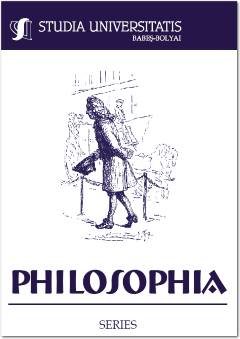DIALECTIC AND ITS ROLE IN ARISTOTLE’S POLITICAL MORPHOLOGY. THE CASE OF DISTINGUISHING OLIGARCHY AND DEMOCRACY
DIALECTIC AND ITS ROLE IN ARISTOTLE’S POLITICAL MORPHOLOGY. THE CASE OF DISTINGUISHING OLIGARCHY AND DEMOCRACY
Author(s): Iovan DreheSubject(s): Philosophy
Published by: Studia Universitatis Babes-Bolyai
Keywords: Aristotle; democracy; oligarchy; dialectic; number; wealth; differentia; accident.
Summary/Abstract: Dialectic and Its Role in Aristotle’s Political Morphology. The Case of Distinguishing Oligarchy and Democracy. Is the number of rulers an essential criterion in distinguishing democracy from oligarchy? This is an important issue tackled by Aristotle in two places from his Politics (III, 8 and IV, 4), an issue that seems to generate disagreement among scholars. Some believe that number is an essential criterion, i.e. a differentia, others that it is an accident. An attempt to solve this disagreement shall be considered from the perspective of Aristotle’s views on dialectics. I will try to show that even if there is no sufficient proof to mandate the interpretation that the number of rulers is a differentia, this position can be defended to some point. In addition, that it is more likely that he considered number to be a particular type of accident.
Journal: Studia Universitatis Babes-Bolyai - Philosophia
- Issue Year: 61/2016
- Issue No: 3
- Page Range: 23-39
- Page Count: 17
- Language: English

